Rui Fu
Machine learning for modelling unstructured grid data in computational physics: a review
Feb 13, 2025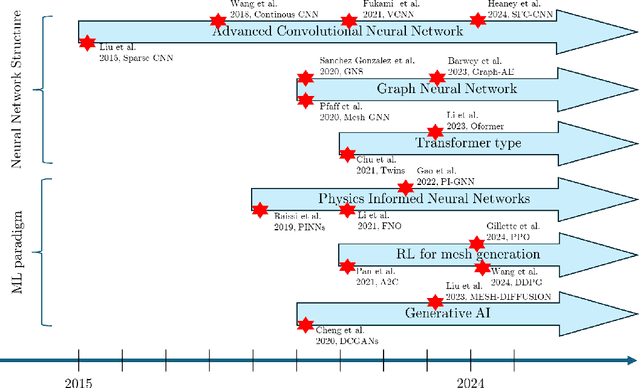

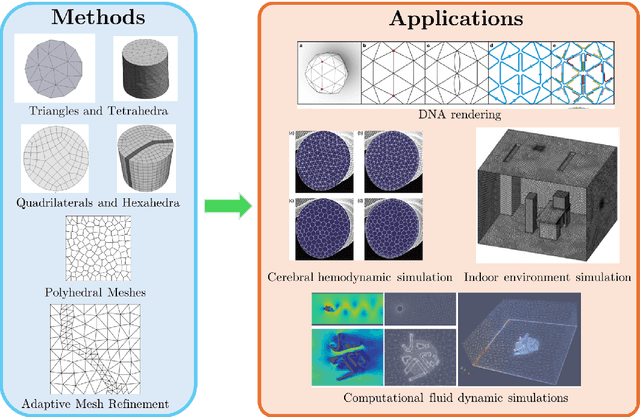

Abstract:Unstructured grid data are essential for modelling complex geometries and dynamics in computational physics. Yet, their inherent irregularity presents significant challenges for conventional machine learning (ML) techniques. This paper provides a comprehensive review of advanced ML methodologies designed to handle unstructured grid data in high-dimensional dynamical systems. Key approaches discussed include graph neural networks, transformer models with spatial attention mechanisms, interpolation-integrated ML methods, and meshless techniques such as physics-informed neural networks. These methodologies have proven effective across diverse fields, including fluid dynamics and environmental simulations. This review is intended as a guidebook for computational scientists seeking to apply ML approaches to unstructured grid data in their domains, as well as for ML researchers looking to address challenges in computational physics. It places special focus on how ML methods can overcome the inherent limitations of traditional numerical techniques and, conversely, how insights from computational physics can inform ML development. To support benchmarking, this review also provides a summary of open-access datasets of unstructured grid data in computational physics. Finally, emerging directions such as generative models with unstructured data, reinforcement learning for mesh generation, and hybrid physics-data-driven paradigms are discussed to inspire future advancements in this evolving field.
Impact and influence of modern AI in metadata management
Jan 28, 2025Abstract:Metadata management plays a critical role in data governance, resource discovery, and decision-making in the data-driven era. While traditional metadata approaches have primarily focused on organization, classification, and resource reuse, the integration of modern artificial intelligence (AI) technologies has significantly transformed these processes. This paper investigates both traditional and AI-driven metadata approaches by examining open-source solutions, commercial tools, and research initiatives. A comparative analysis of traditional and AI-driven metadata management methods is provided, highlighting existing challenges and their impact on next-generation datasets. The paper also presents an innovative AI-assisted metadata management framework designed to address these challenges. This framework leverages more advanced modern AI technologies to automate metadata generation, enhance governance, and improve the accessibility and usability of modern datasets. Finally, the paper outlines future directions for research and development, proposing opportunities to further advance metadata management in the context of AI-driven innovation and complex datasets.
DeepTrend: A Deep Hierarchical Neural Network for Traffic Flow Prediction
Jul 11, 2017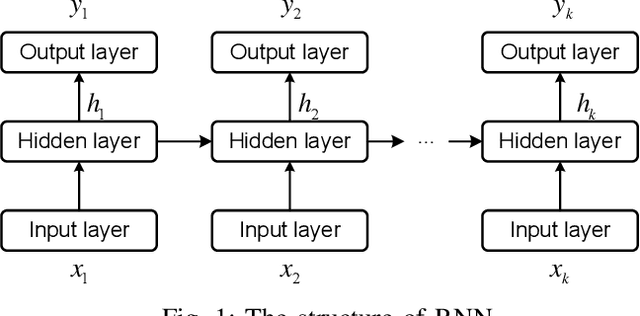
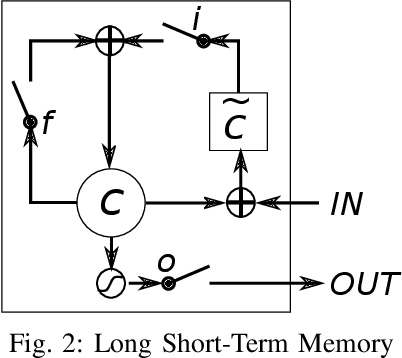
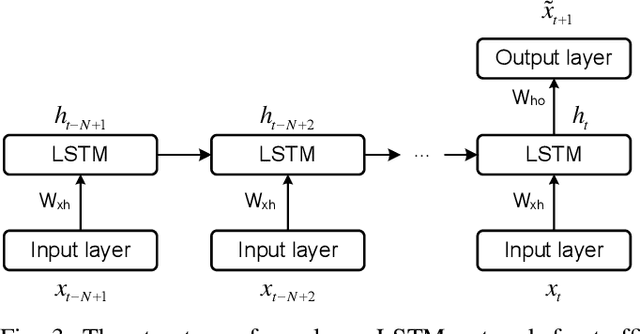
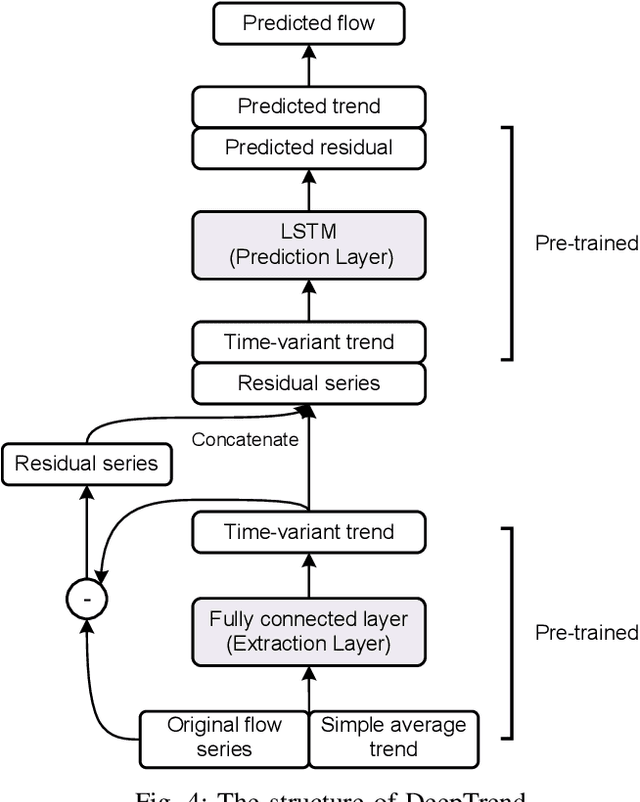
Abstract:In this paper, we consider the temporal pattern in traffic flow time series, and implement a deep learning model for traffic flow prediction. Detrending based methods decompose original flow series into trend and residual series, in which trend describes the fixed temporal pattern in traffic flow and residual series is used for prediction. Inspired by the detrending method, we propose DeepTrend, a deep hierarchical neural network used for traffic flow prediction which considers and extracts the time-variant trend. DeepTrend has two stacked layers: extraction layer and prediction layer. Extraction layer, a fully connected layer, is used to extract the time-variant trend in traffic flow by feeding the original flow series concatenated with corresponding simple average trend series. Prediction layer, an LSTM layer, is used to make flow prediction by feeding the obtained trend from the output of extraction layer and calculated residual series. To make the model more effective, DeepTrend needs first pre-trained layer-by-layer and then fine-tuned in the entire network. Experiments show that DeepTrend can noticeably boost the prediction performance compared with some traditional prediction models and LSTM with detrending based methods.
 Add to Chrome
Add to Chrome Add to Firefox
Add to Firefox Add to Edge
Add to Edge